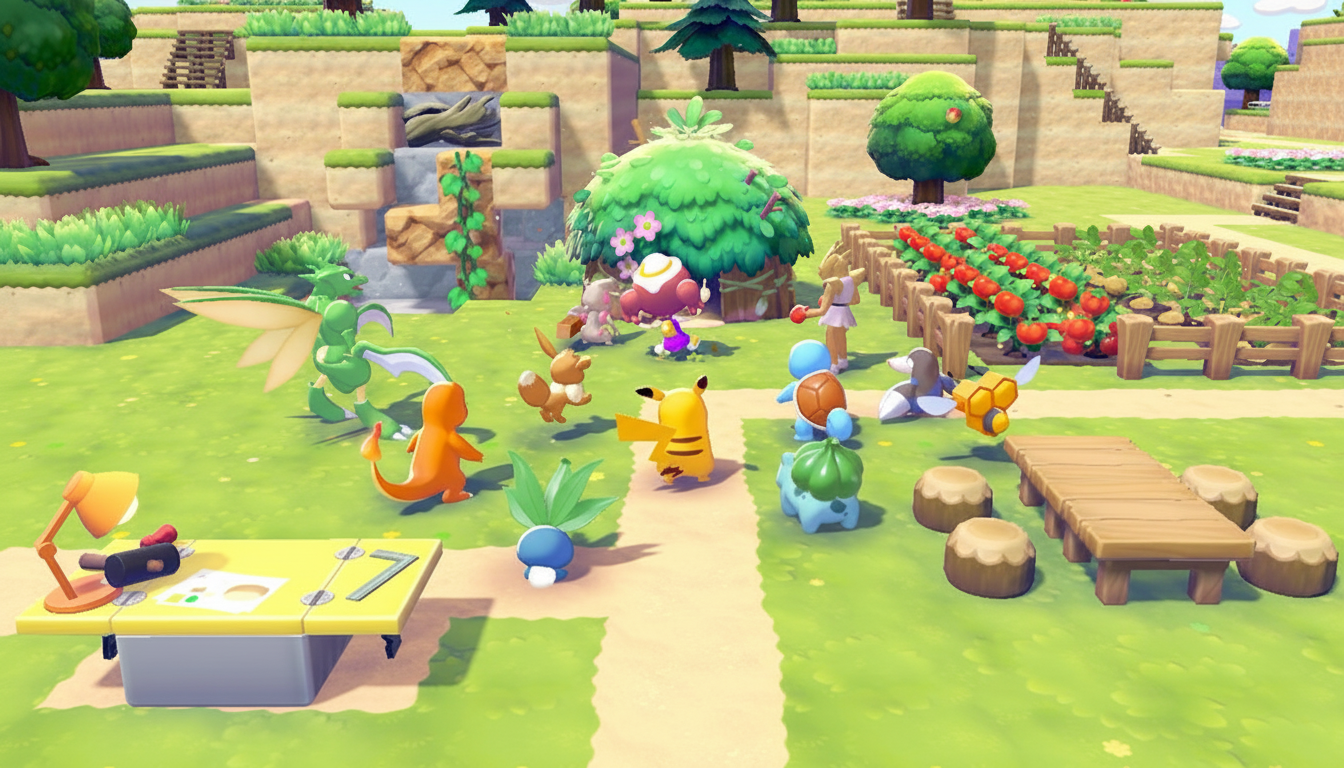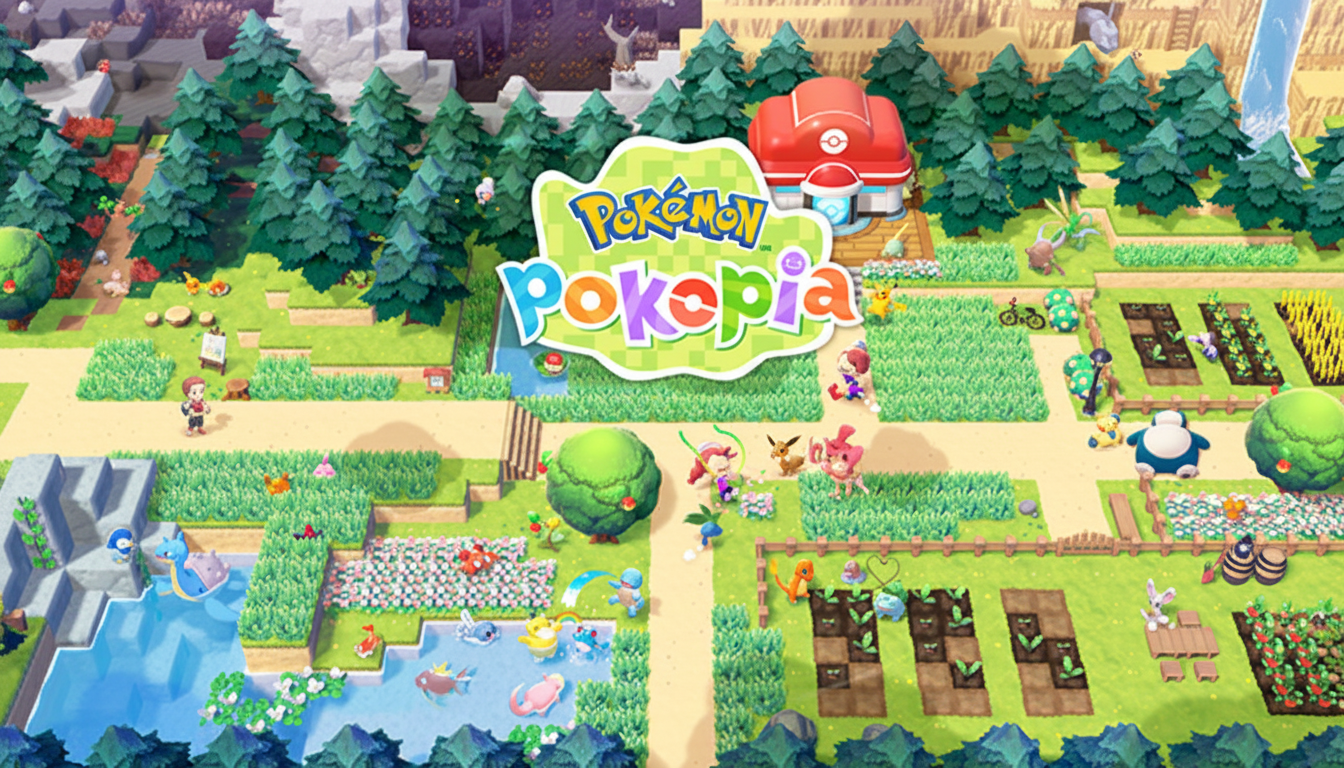Pokémon is going cozy. Nintendo has just announced Pokémon Pokopia, a cutesy life sim/farming game about looking after a village of Pokémon and changing the land with familiar moves. It’s also disarmingly cute to look at, but there is definitely depth beneath the pastel-hued, easy-on-the-eyes façade. Here’s what to know so far.
What Is Pokémon Pokopia, Nintendo’s New Cozy Life Sim?
Pokopia is Pokémon’s first direct take on a life simulator, which was created by Koei Tecmo, a studio that has cut its teeth on large-scale collaborations with Nintendo in Hyrule Warriors and Fire Emblem Warriors. Rather than traverse a classic trainer quest, in this game you are Ditto (yes, the Pokémon), who has taken human form to help its Pokémon neighbors make the best of life in a bustling settlement.
- What Is Pokémon Pokopia, Nintendo’s New Cozy Life Sim?
- How Pokémon Pokopia Plays: Ditto’s Skills and Systems
- Pokémon Pokopia Multiplayer and Online Features Explained
- Platforms, Price, and Supported Languages for Pokopia
- Pokopia’s Game-Key Card Approach Sparks Controversy
- Why Pokopia Matters for Pokémon and Cozy Game Fans

The pitch mingles Animal Crossing-style community-building with the looser, freeform tinkering of genre standouts. You’ll gather resources, farm, craft, and erect structures as you coax new Pokémon into moving in; trailers have shown terraforming-like building tools that allow players to sculpt waterfalls, garden plots, windmills, and outdoor meeting spots — hinting at a sandbox biased more toward creativity than battle.
How Pokémon Pokopia Plays: Ditto’s Skills and Systems
Pokopia has a big hook, centered on Ditto’s bedrock flexibility. As you make friends with Pokémon, Ditto can copy their skills to speed up construction and farming. Nintendo’s promoted examples so far are things like using Bulbasaur’s Leafage to plant and greenify terrain, and Squirtle’s Water Gun to irrigate crops. Anticipate a kit that scales as your list of friends grows, incentivizing you to try out different elemental combos in order to best develop your settlement.
Time passes in real time with day-night cycles, and you have your energy fully restored through naps — it’s a snug loop that encourages smart task planning rather than endless grinding. The weather seems to affect the harvest and landscaping choices, adding a touch of strategy to your seasonal planning and everyday schedule.
Progression is driven by the community: Attend to the land, draw more Pokémon, and unlock additional homes and facilities. It’s less about “beating” a story and more about curating a place that feels uniquely yours — an approach which has driven life sims to astonishing longevity.
Pokémon Pokopia Multiplayer and Online Features Explained
Nintendo says online play will require a Nintendo Switch Online membership. Players can invite Pokémon — and even other players — to come visit their towns, suggesting a kind of low-friction social session rather than playing against one another. If Nintendo follows the mellow co-op of other cozy games, you can anticipate shared decorating, low-stakes resource pooling, and lots of moments worth capturing while playing along with friends — rather than high-stakes challenges.
Nintendo has already aired an early trailer at a Nintendo Direct, and there’s yet another teaser promised in an upcoming company event — indicating a slow trickle of information leading into launch.

Platforms, Price, and Supported Languages for Pokopia
Pokémon Pokopia is coming to Nintendo Switch 2. The price is $69.99 USD according to Nintendo, which is typical for recent first-party flagships, with preorders live on the official store. Language options include English, Japanese, French, German, Italian, Spanish, and Korean, in addition to Simplified and Traditional Chinese.
Nintendo hasn’t announced partnerships with services such as Pokémon HOME. With a genre focus so specific and a relaxed tone to its storytelling, the settlement-building is clearly key rather than gathering or battling.
Pokopia’s Game-Key Card Approach Sparks Controversy
As reported by IGN, Pokopia is going to be the first game authenticating and offering a download of the full game on a Game-Key Card (as opposed to shipping it completely on a cartridge). The decision has prompted debate among collectors and preservationists concerned about long-term access if the servers were to change in the future.
It also underscores an industrywide shift toward digital distribution. Market trackers have reported that digital now drives the majority of game spending in the United States, thanks to bigger file sizes, frequent updates, and convenience. Selling games with just a Game-Key Card would be a way to control manufacturing costs and something potentially more in line with how many people are getting their games today.
Why Pokopia Matters for Pokémon and Cozy Game Fans
Side genres have dabbled in the Pokémon brand for years — New Pokémon Snap, Pokémon Café ReMix, and Pokémon Quest come to mind — but a full-on life sim is an indicator of a strategic push into the booming cozy space. The appetite is real: Stardew Valley has sold tens of millions worldwide, and Animal Crossing: New Horizons appears to be among the best-selling Nintendo games ever, according to the financial reports Nintendo issues.
If Pokopia can provide an open-ended sandbox driven by Pokémon whimsy, it could bring together two massive audiences: lifelong franchise fans and casual players looking for a low-stakes creative outlet. Throw in Ditto’s shapeshifting gimmick here, and Nintendo may just have found a new blank canvas for the series — one where the most satisfying “evolution” is the town that you raise together.

